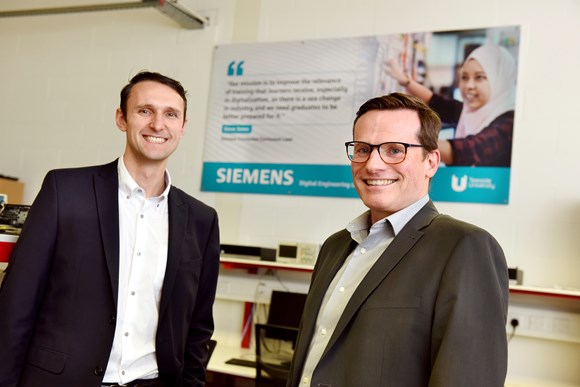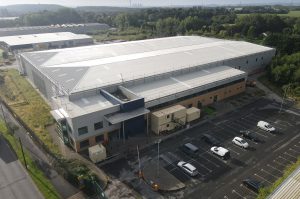New facilities to showcase digital technology in engineering

State-of-the-art laboratories providing vital experience of real-world applications of digital technology in the engineering industry have been opened at Teesside University
The Smart Energy Laboratory and Digital Process Laboratory in the University’s School of Computing, Engineering & Digital Technologies have been opened as part of a long-running partnership with global technology company Siemens.
The University is part of the Siemens Connected Curriculum initiative which introduces advanced industrial tools, data and approaches to create a collaborative place where students can learn and prepare for the future. It includes industry-leading Internet of Things (IOT) software, simulation environments, case studies and real-life problem-solving tutorials.
The new laboratories will introduce students to leading edge equipment and software and make them aware of how the technology can be applied in industry settings.
They will also provide an important link to the University’s Industrial Digitalisation Technology Centre which works with SMEs to explore how they can become more efficient and productive through the use of digital technology.
Ross Caddens, Director of Business Development at Siemens Digital Industries Software, and a Visiting Professor of Cyber-Physical Design at Teesside University, said: “With these laboratories we want to show how digital technology, and specifically the Siemens Xcelerator portfolio, can be applied across different design and production processes, giving students real-world experience to ensure that they are ready for jobs in industry when they graduate from Teesside University.
“We want to create a new generation of skilled engineers to ensure that they are aware of the possibilities new technology can bring within their profession.”
Professor David Hughes, Associate Dean (Research and Innovation) in the School of Computing, Engineering & Digital Technologies, said: “These laboratories will be used by students studying all of our engineering disciplines, from undergraduate to doctoral level.
“Whether you’re a civil engineer or a chemical engineer, the use of digital technology is ubiquitous.
“By creating an awareness of the opportunities digital technology can bring, we can ensure that our graduates can make a real impact in the workplace.”
Engineering at Teesside University: https://www.tees.ac.uk/undergraduate_courses/engineering_&_construction/


